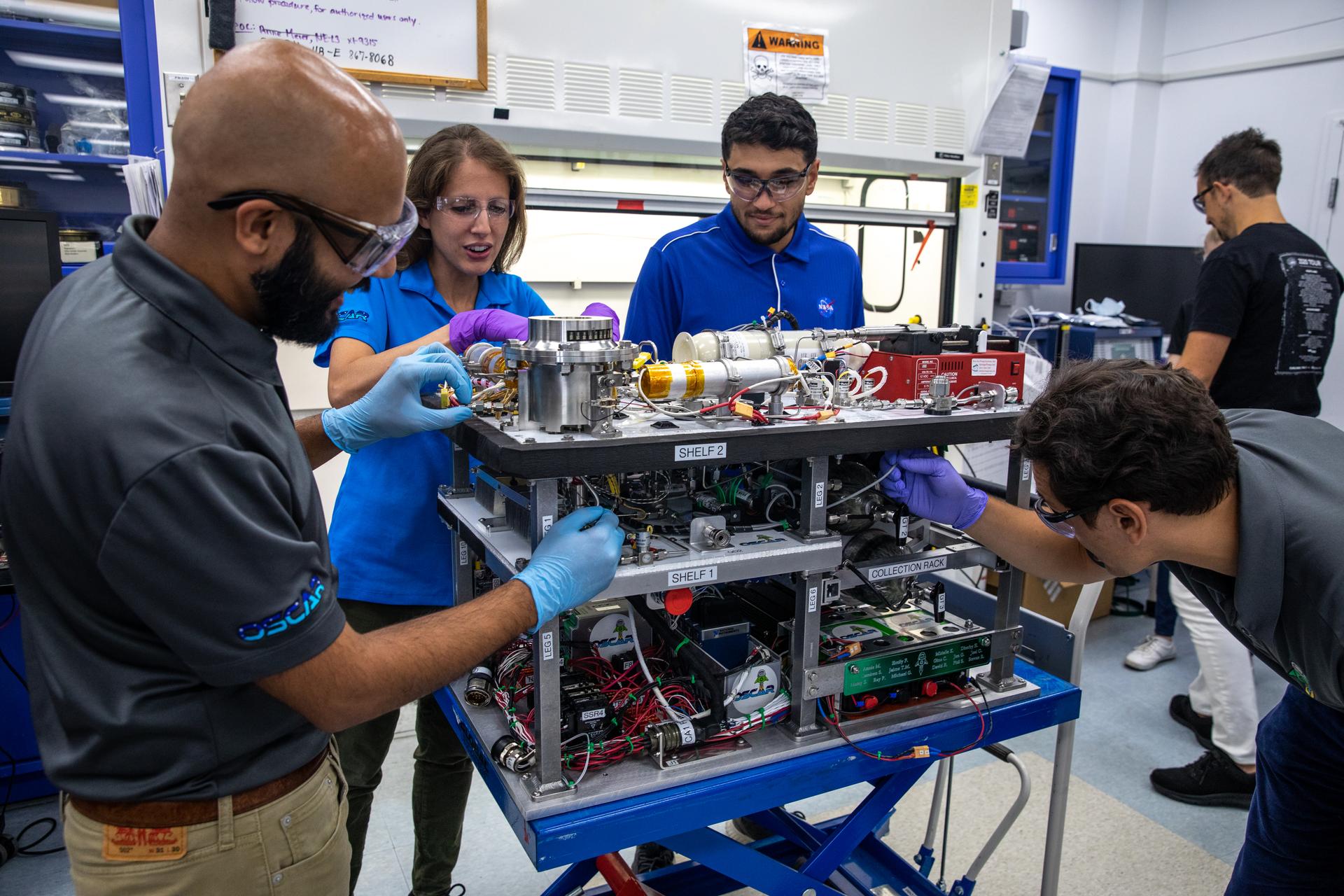
NASA's Kennedy Space Center in Florida has a long record of achievements in sustainability and recently added another to the list when the spaceport's Applied Chemistry Lab became the first in the agency to be certified for its environmentally conscious practices.
The My Green Lab Certification recognizes sustainability best practices in research facilities around the world. The certification program run by My Green Lab, a non-profit dedicated to creating a culture of sustainability through science, is considered a key measure of progress towards a zero-carbon future by the United Nations Race to Zero campaign.
"When I heard our lab achieved certification, I was so happy," said Dr. Annie Meier, one of the laboratory's chemical engineers. "It meant we could now make a conscious effort to share these green practices with all who work in our lab. We even added them to our training materials for new and incoming members in the lab."
The lab performs research and technology development for a wide range of chemistry and engineering-related applications to solve the unique operational needs of NASA and outside partners. The lab primarily focuses on in-situ resource utilization and addressing technology gaps related to lunar and Martian sustainability. The lab's scientists also provide expertise in the fields of logistics reduction, plasma science, hypergolic fuels, analytical instrumentation, and gas analysis.
While sustainability has long been a focus of the lab, the journey to the certification began when Riley Yager, a doctoral student from University of Alabama at Birmingham - where Meier was a technical monitor - shared her knowledge of the program after pursuing green lab practices at her university.
"I work as a sustainability ambassador at my university, so I knew of this program," Yager said. "Sustainable practices are something woven into my everyday life, so naturally I wanted to bring those practices into my lab environments."
After learning about the program from Yager and discovering the many other academic institutions and companies certified globally, Meier submitted a proposal to NASA and obtained funding to pursue certification for the Applied Chemistry Lab.
After a kickoff event hosted by My Green Lab in April 2023, the lab's path to certification began with a self-assessment survey, in which members of the lab answered a series of questions about their practices in areas such as cold storage, green chemistry, infrastructure energy, resource management, waste reduction, and water. My Green Lab collected and analyzed the answers, providing a baseline assessment and recommendations to improve the lab's sustainable practices.
"We took their initial survey and learned we had lots of room for improvements as a lab," Meier said. "Then I worked with a few interns over the summer to spearhead the 'green team' to implement changes and get momentum from the entire lab."
The lab began with minimizing purchases by improving efficiencies during the inventory process. The team also performed a waste audit of all seven of its laboratories. They adopted nitrile glove and pipette tip box recycling, reviewed the "12 principles of green chemistry" with the lab members, and installed stickers and signage about what can and cannot be unplugged to save energy. Additionally, they installed low-flow aerators on the lab tap sinks to reduce flow, and the lab now uses a recycling sink to save on water or solvents for cleaning parts.
As luck would have it, Yager ended up working at the Applied Chemistry Lab on a NASA fellowship and became a member of the green team.
"It was really fun to see that come full circle," Meier said. "Almost all members of the lab, from our fellows to most senior members, used their self-motivation to get on the sustainability train."
The green team continued to grow as the lab implemented changes to become more sustainable. Just over six months after the kickoff event, they completed another assessment survey. With possible certification levels of bronze, silver, gold, platinum, and green - the level that adheres closest to My Green Lab's highest standards - the ACL was certified green, marking the first time any NASA center obtained a My Green Lab Certification.
"Our lab is looking to sustain these green practices and achieve the same status when we are reassessed in the future," Meier said. "This effort could be a wonderful catalyst to inspire other work groups to lean towards more 'green' practices at the frontline in our laboratories."
The NASA Kennedy lab joined over 2,500 labs in a range of sectors that received the My Green Lab certification. Maintaining the distinction will require recertification every two years.






